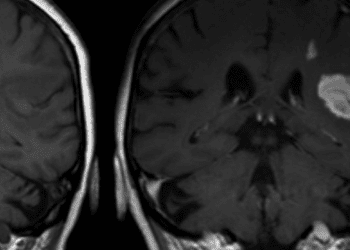Rehabilitation beneficial for patients with respiratory failure
1. In this randomized controlled trial, rehabilitation therapy, over the short term, did not reduce the time to discharge in patients who suffered acute respiratory failure when compared to care as usual.
2. However, 6 months after hospitalization, many indices of respiratory motor function were significantly better in the rehabilitation group.
Evidence Rating Level: 1 (Excellent)
Study Rundown: To decrease the cost of healthcare, one goal of many intensive care units (ICUs) across the country is to safely reduce the duration of hospitalization following significant illnesses. In particular, patients with acute respiratory failure, who often have high morbidity after discharge, are a target group for new hospital practices. In this randomized, controlled, single center trial, patients who had suffered acute respiratory failure were assigned to receive either daily passive and resistance physical therapy (PT) or care as usual with sparse passive PT, and were followed up for 2, 4, and 6 months. While the primary endpoint of hospital length of stay was similar between groups, patients who received more focused PT performed better on 3 physical health batteries 6 months after hospitalization. There was no difference in indices for mental health or cognition, nor were there differences at any endpoint for the 2 and 4 month time points.
Though this study did not show significant differences in its primary endpoint, many caveats and considerations should be acknowledged. First, the follow-up rate for the study was approximately 50% for both groups, indicating that the study may have lacked appropriate power and could have been susceptible to unmeasured forms of bias. Further, while length of hospital stay was unlikely to be different, the study was not designed to measure medium-term and long-term effects of PT as primary endpoints. Redesign of this study to more closely measure these endpoints would be greatly beneficial for understanding the value of hospital-based PT for these patients.
Click to read the study, published today in JAMA
Relevant Reading: Early physical and occupational therapy in mechanically ventilated, critically ill patients: a randomised controlled trial
In-Depth [randomized controlled trial]: Of 4816 patients screened, 612 were eligible and 300 consented to participate in this randomized, controlled, single-center study and were assigned to receive daily passive and resistance PT or care as usual. 56% of the rehabilitation group and 54% of the care as usual group were available for follow-up at 2, 4, and 6 months and underwent a battery of physical, mental, and cognitive health assessments. The primary endpoint of mean length of hospital stay was 10 days for both groups (p = 0.41) and there were no differences in ventilator free days, or ICU free days. While there were no significant differences in any health measure at 2 or 4 months, the rehabilitation group performed better (p < 0.05) on almost all physical health indices, including the Short Physical Performance Battery (SPPB), Physical Functioning Scale (PFS), and Functional Performance Index (FPI), with near significance in the SF-36 Physical Functioning Score (p = 0.05). Near significance was detected in the SF-36 Mental Health Scale (p = 0.19) and Mini Mental State Exam (MMSE; p = 0.17).
Image: PD
©2016 2 Minute Medicine, Inc. All rights reserved. No works may be reproduced without expressed written consent from 2 Minute Medicine, Inc. Inquire about licensing here. No article should be construed as medical advice and is not intended as such by the authors or by 2 Minute Medicine, Inc.






